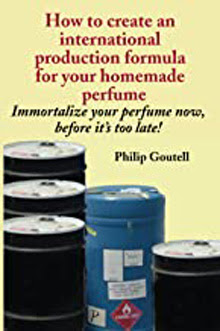Thursday, March 25, 2021
Why bother with perfume? (Hint: you can't get away from it!)
If you have a half-way sensitive nose you smell smells everywhere and some stand out as beautiful and others as stinky. Odor can move you and that's the story of perfume. It's not how it's made; it's not the cost or the markup. It's the moment you smell something and react. Your reaction wasn't intentional. It was something forced on you by the smell.
My dog has an "accident." I don't see the dog; I don't see the "accident." But that odor immediately tells me what has happened. It communicates. When I'm in a supermarket and suddenly smell a fine fragrance, I can't tell where the scent has come from. I see no women in my aisle. Yet I know a woman has passed through and left a scent and I'm left wondering: Who is she? What does she look like? How might she look at me? Likely these questions will remain unanswered but that scent has left a memory.
Scent instantly transforms an environment. In the supermarket aisle, among all sorts of food smells -- fish, meat, fruits and vegetables, coffee of various flavors and grinds, the oh, so light aroma of a fine fragrance can stand out.
Odor is a powerful tool for communication. You can't see it coming. You can't see it at all. But suddenly you're enveloped in it. You can't say what direction it came from. You can't say where the person who was wearing it has gone. But it's there and it has your attention and you can't run from it.
It's there -- and, if its a smell that can get a reaction out of you, it's going to do that whether you like it or not. With a visual image you can turn away if for whatever reason you don't like it. But a smell is just "upon you."
Making perfume is (mostly) about making good smells, smells that will give pleasure when detected. But it involves a lot more than mixing aroma materials together until they smell nice. "Nice" can be boring and a great many of the materials used to make perfume smell "nice" by themselves -- which can make you wonder why, in the creation of a perfume, the "nice" smells are mixed with materials that may not smell so nice! (And that, really, is part of how fine fragrances are made.)
If you want to be involved with/in perfume, you want to recognize what it does. It can identify a woman more quickly than a tattoo. It can make an instant statement about elegance -- or seduction. It can leave a trail behind after a woman has left the room. It can get attention leaving no ability to push back. But, as a maker of perfume, how do you control the message it communicates?
Herein lies much of the art of perfumery. The best in the business can tailor their message -- their fragrance == so that it coordinates with a marketing theme and supports, through its aroma, the pictures in the magazines and the images on TV. The best creators of perfume are the ones who can direct your fantasies in the direction they have chosen. It's not easy and few can succeed at it regularly.
A perfume can be an art form or it can be a mess. But once the scent is out there it will communicate, for better or for worse!
Subscribe to:
Post Comments (Atom)


No comments:
Post a Comment